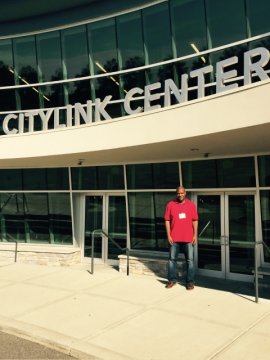 CINCINNATI — Michael Kendrick spent 12 years mixing bread dough at an Interstate Brands bakery in Cincinnati’s West End. He made it through the Great Recession only to find himself unemployed when the company was shuttered in 2012.
CINCINNATI — Michael Kendrick spent 12 years mixing bread dough at an Interstate Brands bakery in Cincinnati’s West End. He made it through the Great Recession only to find himself unemployed when the company was shuttered in 2012.
For seven long months after that, Kendrick, 39, struggled to get by. He ran up thousands of dollars on credit cards and got behind on bills. Soon his credit card company was garnishing his wages and filing suit.
A payday loan seemed to offer a financial lifeline to someone drowning in debt. So he took out his first loan, and quickly, he said, “it became like a revolving door. You are getting paid and then giving them all your money.” He now works two jobs, one in food service and the other in custodial work at a local university.
Then collection calls starting coming, and he found himself in over his head.
Brandon Watkins, 33, tells a similar story. He moved to Cincinnati from Alabama to live near his wife’s family. He is a cook at a casino, with dreams of one day having his own restaurant. “The first time going in, I was happy with it. I got money in my hand very quickly, and all I needed was my pay stub. I had to make ends meet, ” said Watkins, who is married with four kids. But he ended up taking out more payday loans, including from online shops.
Michael Kendrick at Cincinnati’s CityLink Center, which offers financial counseling and other services.Kevin Williams
Like a recovering addict, Watkins said he has been “free and clear” from the tentacles of payday loans for a year.
He and Kendrick, are now receiving financial counseling from Cincinnati-based CityLink Center, an integrated shop for social services in one of the city’s neediest neighborhoods. It partners with the business and faith communities to offer mentoring, legal assistance, transportation, job training, education and other services under one roof. Kendrick eventually pulled himself out of debt. But his experience with the payday loans industry left him battered and bruised.
Interesting facts
Additional information














